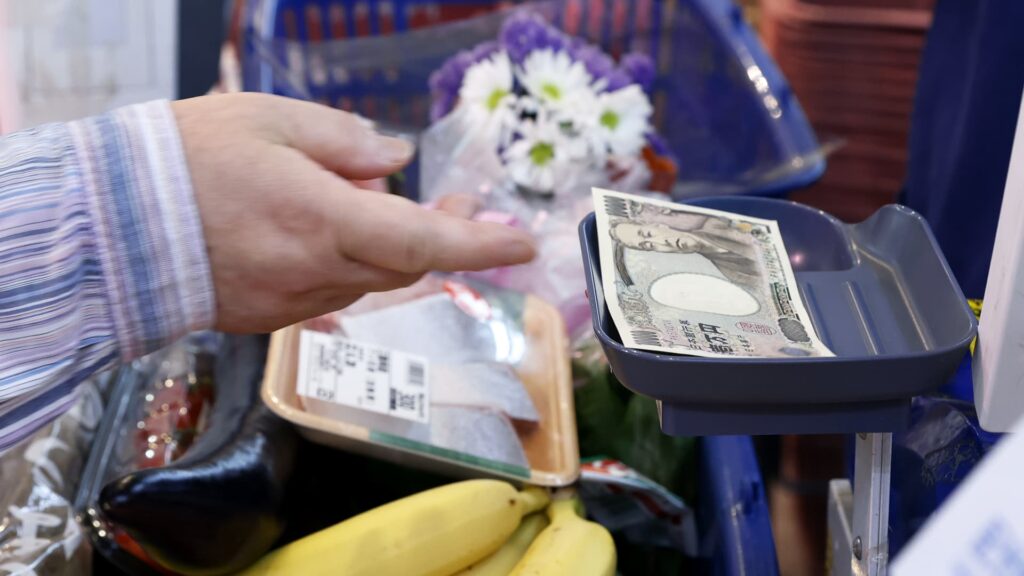A customer places a Japanese 10,000 yen banknote on a checkout counter while making a purchase at an Akidai YK supermarket in Tokyo, Japan, on Monday, June 27, 2022.
Kiyoshi Ota | Bloomberg | Getty Images
SINGAPORE — Asia-Pacific markets mostly fell on Tuesday, with investors watching August pay and spending data out from Japan and as mainland Chinese markets return to trade.
Household spending in Japan fell 1.9% year-on-year in August in real terms, a softer fall compared to the 2.6% decline expected by a Reuters poll of economists.
The drop is the fastest pace of decline since January, which saw a 6.3% fall year-on-year. That decline also came before spring wage negotiations delivered the largest pay hikes to unionized Japanese workers in 33 years.
However, real wages rose in August, with data from the country’s statistics bureau indicating that wages climbed 2% to an average of 574,334 yen ($3,877.44).
The benchmark Nikkei 225 slipped 0.75% after the release, while the Topix was down 0.88%.
South Korea’s Kospi was 0.61% lower, dragged by shares of heavyweight Samsung Electronics after it released worse than expected third quarter guidance.
The small cap Kosdaq was down 0.14%.
Futures for Hong Kong’s Hang Seng index stood at 23,169, pointing to a stronger open compared to the HSI’s close of 23,099.78. Monday’s close was the first time the HSI had retaken the 23,000 mark since February 2022.
Australia’s S&P/ASX 200 started the day up 0.16%.
Overnight in the U.S., stocks slid as rising oil prices and higher Treasury yields weighed on market sentiment.
The Dow Jones Industrial Average dropped 0.94%, while the S&P 500 slid 0.96%. The Nasdaq Composite saw the largest loss, falling 1.18%.
The benchmark 10-year Treasury yield rose to 4.02%, marking the first time since August that the yield topped 4%.
Oil prices also rose as tensions in the Middle East remain high. U.S. crude climbed more than 3% to settle above $77 per barrel.
— CNBC’s Lisa Kailai Han and Jesse Pound contributed to this report.

